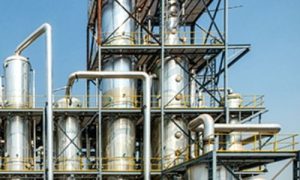Ethanol Blending Soars To 15 Percent, Drives Bioenergy Sector

India’s ethanol blending program has made significant strides, increasing from 1.53% in 2014 to 15% in 2024. The government plans to reach 20% by 2025, with benefits including Rs. 99,014 crore in foreign exchange savings and reduced CO2 emissions. The launch of E100 fuel at over 400 outlets and the introduction of incentives for ethanol production are pivotal. The government’s support includes financial incentives for different ethanol feedstocks and resuming FCI rice supply to distilleries.
A standout achievement is the ethanol blending programme, which has seen the percentage surge from 1.53 percent in 2014 to an impressive 15 percent in 2024.
India’s bioenergy sector takes a leap forward as ethanol blending reaches 15 percent in 2024, marking significant progress in the nation’s renewable energy efforts. With E100 fuel now available at over 400 outlets, the government pushes for more E100-compatible vehicles to further bolster the green transition.
At the India Bio-Energy & Tech Expo 2024, Petroleum Minister Hardeep Singh Puri spotlighted India’s remarkable strides in the bioenergy sector, underscoring its pivotal role in the nation’s energy transformation. Minister Puri emphasised bioenergy’s growing importance as an alternative to fossil fuels, offering both environmental benefits and economic opportunities, particularly in rural regions.
Minister Puri detailed the government’s strategic initiatives to advance the bioenergy sector, which include ethanol and biodiesel blending, Compressed Biogas (CBG), Sustainable Aviation Fuels, biomass utilisation, Biohydrogen, and waste-to-energy solutions.
A standout achievement is the ethanol blending programme, which has seen the percentage surge from 1.53 percent in 2014 to an impressive 15 percent in 2024. The government aims to reach 20 percent blending by 2025, with significant benefits already realised, including Rs. 99,014 crore in foreign exchange savings, a reduction of 519 lakh metric tons in CO2 emissions, and the substitution of 173 lakh metric tons of crude oil.
Minister Puri also highlighted the widespread availability of E20 fuel at over 15,600 retail outlets across India, crediting the Pradhan Mantri JI-VAN Yojana for providing critical financial support to advanced biofuel projects. These initiatives are essential in developing a sustainable ethanol production ecosystem.
To support ethanol production, the government has introduced incentives, including Rs. 9.72 per litre for ethanol derived from maise, Rs. 8.46 per litre for ethanol from damaged rice, and Rs. 6.87 per litre for ethanol from C-heavy molasses. These incentives have notably increased maise’s contribution to ethanol production, which rose to 36 percent in the 2023-24 Ethanol Supply Year (ESY) from 0 percent in 2021-22. Additionally, the government has resumed the supply of FCI rice to ethanol distilleries, allowing up to 23 lakh tonnes to be purchased through e-auctions from August to October 2024. From November 2024, the supply of sugarcane juice and syrup to distilleries will also commence.
Minister Puri emphasised the importance of diversifying ethanol feedstocks to ensure production security and avoid over-reliance on any single source. The government’s policy of providing stable and remunerative prices for ethanol has effectively reduced pending arrears for sugarcane farmers, lessened dependence on crude oil imports, and contributed to foreign exchange savings while benefiting the environment.
A significant milestone in the ethanol programme is the launch of E100 fuel at over 400 retail outlets nationwide. Minister Puri urged Transport Minister Nitin Gadkari to encourage automobile manufacturers to produce vehicles compatible with E100 fuel, highlighting that ethanol blending improves engine performance by increasing the octane number and preventing pre-ignition knock, contrary to common misconceptions.
Drawing on global examples, Puri cited Brazil’s successful use of high ethanol blends—up to 60-70 percent in vehicles—as evidence of the viability of high ethanol content. He reassured that India is committed to scaling up E20 production and supporting the transition with measures to facilitate the use of transition fuels in older vehicles.
Puri also commended the automobile industry for its proactive approach, noting that manufacturers are producing E20-compliant vehicles and developing retrofit kits for older models. These kits, which can be installed during regular servicing, represent a significant advancement in accommodating older vehicles and promoting biofuel adoption.
To read more about Ethanol Industry News, continue reading Agriinsite.com
Source Link : https://www.outlookbusiness.com/planet/sustainability/ethanol-blending-soars-to-15-percent-drives-bioenergy-sector
















